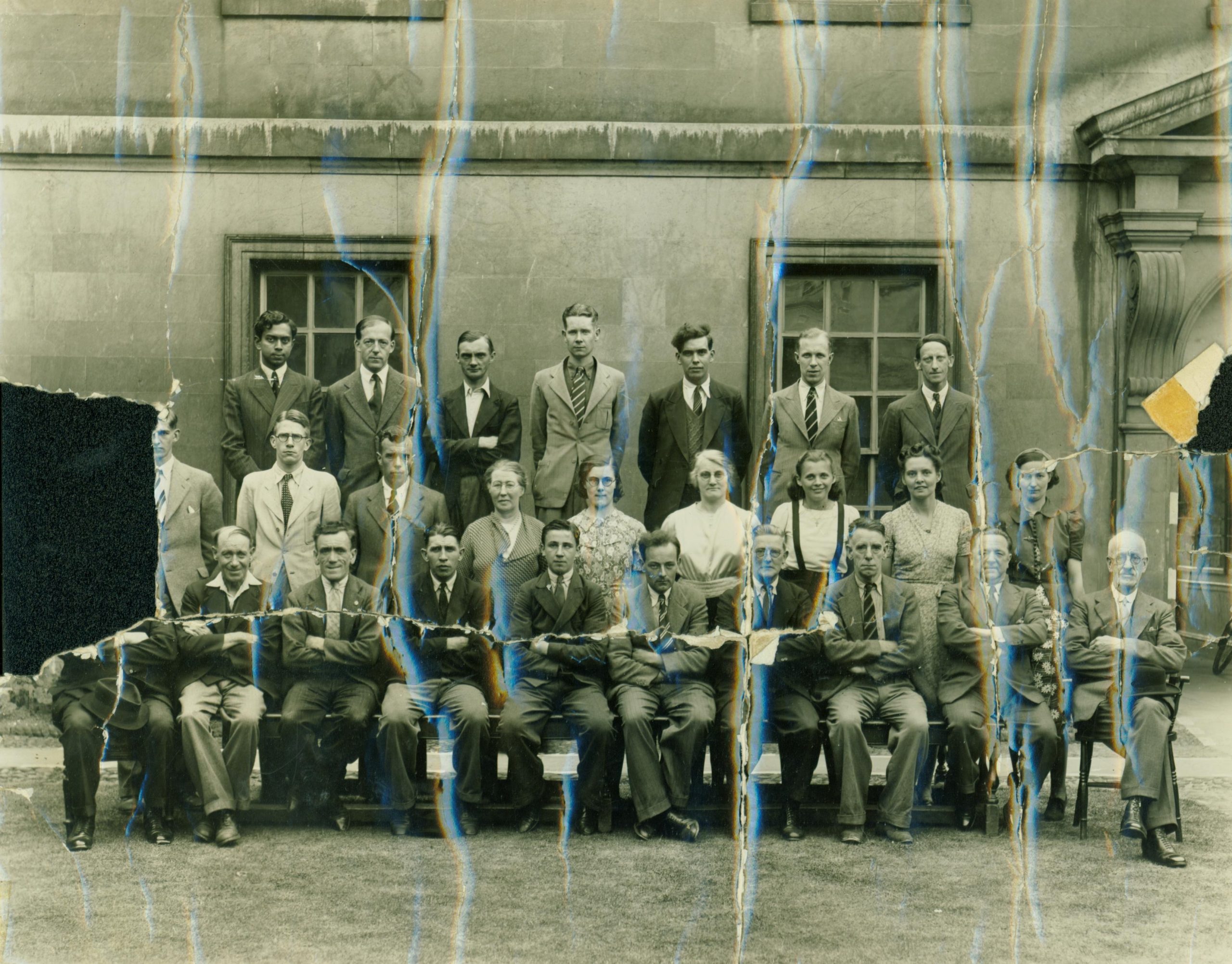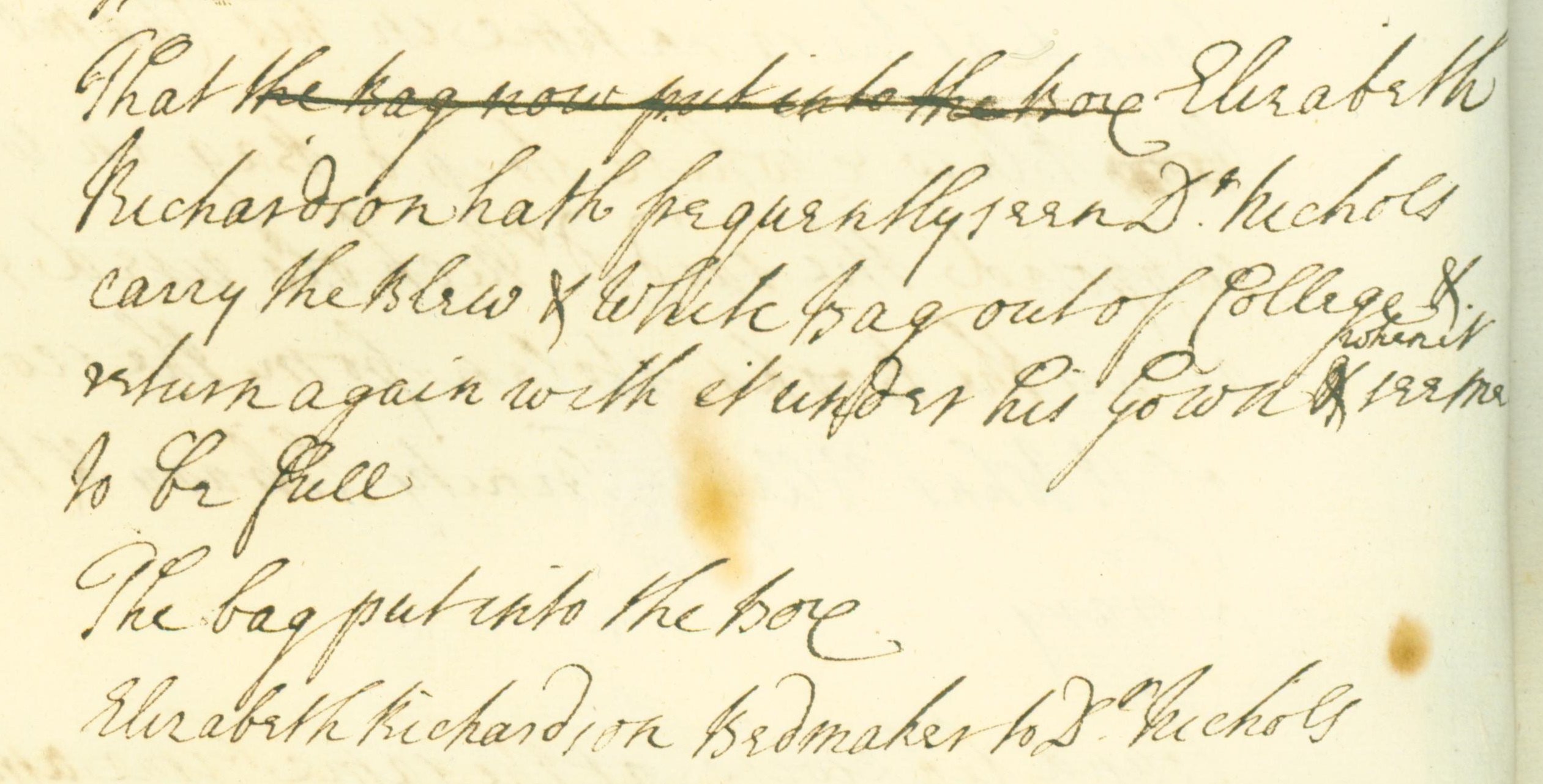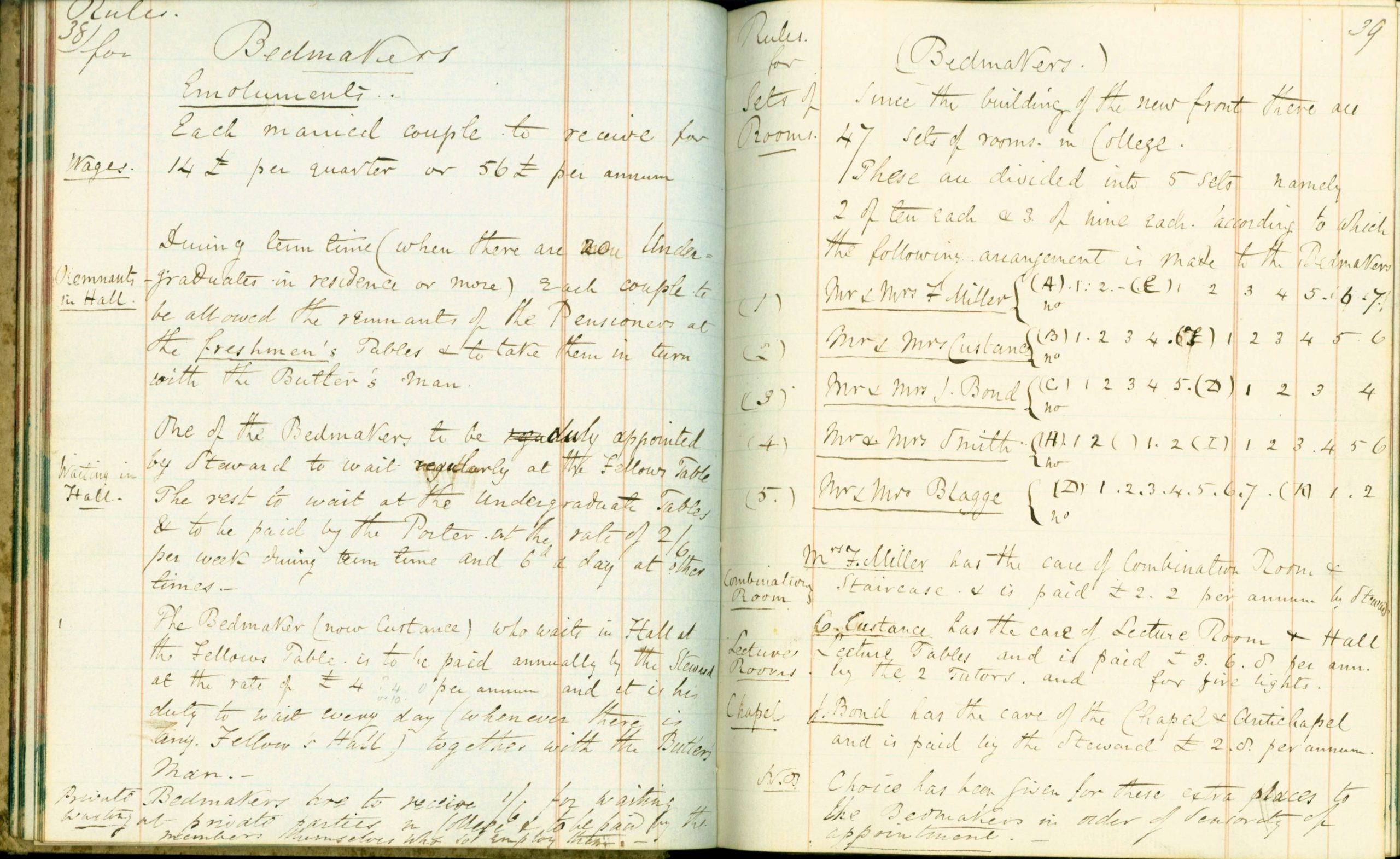As part of the commemoration of the 40th anniversary of the admission of women to College, the Archive put on an exhibition examining the history of women and their relationship with Trinity Hall since it’s foundation until now. Since few people were able to see the exhibition in all its glory, I’ve been disseminating sections of it for a wider audience. The recent article for Front Court from the Archive focused on female tradespeople and merchants; here we will be looking at what went on below the staircases in the world of female servants and staff.

Trinity Hall Staff, c.1930s. THPH/3/1930
The Laundress or Launderer was one of the original servant positions, dating back to the medieval foundations of the colleges. Traditionally, all servants of the medieval colleges were male, except for the laundress. Male launderers were hard to come by, so the position was often filled by a woman. However, certain safeguards were put in place to minimise contact between the laundress and the fellows, who were required to remain celibate. Most colleges required the laundress to live in town and be handed the linen at the college gates. Some colleges, such as King’s College, went even further and stipulated in their statutes that only elderly or unattractive women could be hired as the laundress. The laundress was generally amongst the highest paid of college servants, but this was most likely to cover their living expenses in town, because female servants were not allowed to live in College like the male servants. The Trinity Hall foundation statutes made no provision for a laundress, but there was certainly a laundress working for the College by the 17th century.
The other positions traditionally held by women in colleges were bedmakers and cleaners. It is unclear precisely when the College began hiring female cleaners and bedmakers, but the account books that have survived demonstrate the College was regularly employing women to clean the Hall and other rooms around College, polish the silver, and perform various other duties around College by at least the 18th century. From the trial papers of Philip Nichols, it also appears there were female bedmakers by the mid 18th century. Philip Nichols was a fellow at Trinity Hall from 1723-30 who was caught stealing books from several libraries around Cambridge, including St John’s and the University Library. His bedmaker, Elizabeth Richardson, testified that she witnessed him leaving his room with a large bag and return with it full under his gown.

Elizabeth Richardson’s testimony against Philip Nicholls, 1731. THGB/4/1/8/3
By at least the mid 19th century, staircases were being worked on by husband and wife teams of gyps and bedmakers. The wives cleaned the rooms and the gyps were the students’ and fellows’ personal servants. Gyps brought the students’ morning teas to their rooms and did everything for them except clean their shoes. There was a bootman for that. In 1950, bedmakers and cleaners in College made a shilling and ninepence per hour, and the minimum wage for women was set to £1 less per week compared to their male counterparts, who made £4.15 (or £4 per week if lunch was provided). One pound less per week does not sound like much money, but £1 in 1950 is the equivalent of about £23 today.

Steward’s Order Book detailing the responsibilities of bedmakers, 1843-50. THAR/5/4/3
The first kitchen manageress was Mrs Leggett from 1920 to 1934. When Mrs Leggett was the manageress she enjoyed a high status in the kitchen, having her own waiter, crockery, and wine in the cellars. One of the main duties of the kitchen manageress was to entertain fellows’ wives and entertain parents when they came up. The manageress was also responsible for the menus, bookings, and purchasing of goods for the kitchens. During wartime, she was also responsible for rationing. According to Don Tarrant, College Butler from 1925 to 1973, Mrs Leggett was a fearsome woman, who even told fellows what to do. Mrs Leggett was succeeded as manageress by Miss Wain (1934-45) and Miss Mackenzie (1945-53). According to the Report on the Sub-Committee of Stewards and Bursars on the wages of College servants, the Kitchen Manager/ Manageress was one of the best paid servant positions in College.
Sara Rhodes holds the distinction of not only being Trinity Hall’s first female Butler but also being the first in Cambridge. She first started working for the College in 1986 as a part-time waitress, helping out with evening meals. She left for a time, but came back in 1997, when she was appointed as College Butler, and she has been here ever since. Kim Brown became the first female porter in 2003 and is also still working for the College. Today there are women working in nearly every department of the College, and they make up just over half of the workforce at Trinity Hall.
References
Cobban, Alan. English University Life in the Middle Ages (London: UCL Press, 1999).
Duckenfield, Bridget. College Cloisters- Married Bachelors (Newcastle: Cambridge Scholars Publishing, 2013).
Trinity Hall Staff Recollections: 1925-2002 (Cambridge: University Printing Services, 2002).